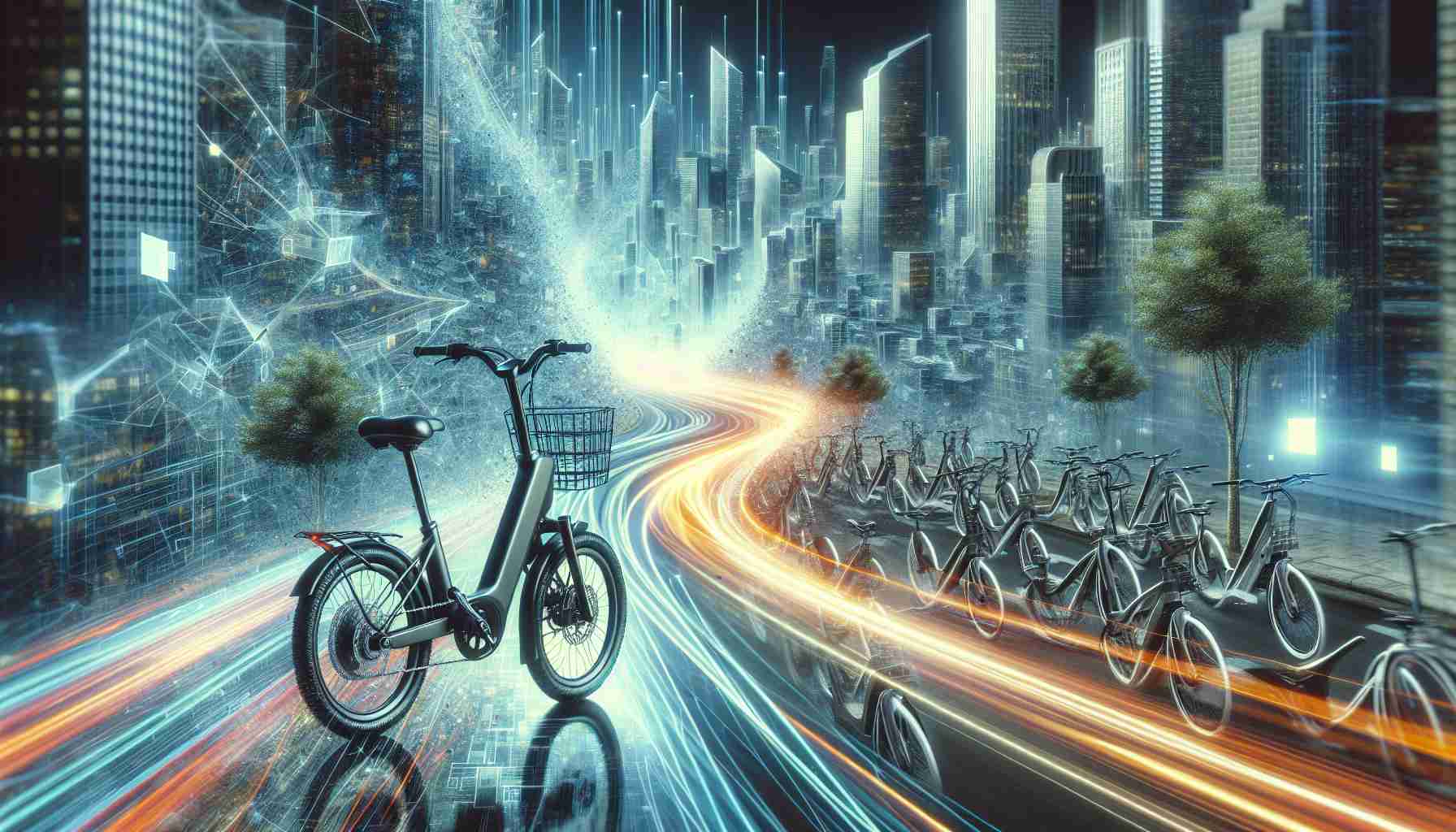
A Transformative Shift in the Motorcycle Industry
In Karachi, sales of electric motorbikes are experiencing remarkable growth despite ongoing economic turbulence and political uncertainty. Projections for 2025 are even more promising, contingent on the successful implementation of the upcoming New Energy Vehicle (NEV) policy. This policy aims to support investors, manufacturers, and customers alike, streamline the registration process, and ensure the quality of electric vehicles.
While local manufacturers are eager to explore the latest models flooding in from China, the localization of parts is lagging, awaiting the completion of dependable electric motorcycle designs. Current data indicates approximately 50,000 electric scooters were sold in the last financial year, a notable increase from the mere 15,000 units sold in the previous year.
Environmental advocates stress the importance of transitioning to 100% NEV motorbikes to combat worsening air quality and promote a healthier ecosystem. The government is anticipated to introduce incentives within the NEV policy, including zero-interest bank financing and subsidies for electric bikes, aiming to further encourage adoption.
Industry leaders emphasize the need for a robust recycling mechanism for motorbike batteries. Recent discussions highlight the potential of Graphene batteries, a technology gaining traction in neighboring countries due to its efficiency and environmental benefits.
As more companies join the electric motorcycle market, the focus on quality standards is vital to maintain consumer trust and drive future growth. With inflation easing and economic indicators improving, the electric bike sector is set for an explosive year ahead.
The Future of Electric Motorbikes: A Revolution on Two Wheels
A Transformative Shift in the Motorcycle Industry
The motorcycle industry in Karachi is undergoing a significant transformation, particularly with the rise of electric motorbikes. Sales have surged, reaching approximately 50,000 electric scooters last fiscal year, a substantial increase from just 15,000 units the year before. As the local market continues to adapt to these changes, several key aspects emerge that could shape the future of electric motorbikes in Pakistan.
Pros and Cons of Electric Motorbikes
Pros:
– Environmental Benefits: Electric motorbikes produce zero emissions, contributing to improved air quality and a healthier urban ecosystem.
– Cost Efficiency: With lower operating costs and the potential for subsidies under the new NEV policy, electric motorbikes present a financially attractive option for consumers.
– Technological Innovation: Advancements such as Graphene batteries offer faster charging times, increased energy density, and enhanced longevity over traditional lithium batteries.
Cons:
– Charging Infrastructure: The current lack of widespread charging stations may deter prospective buyers.
– Initial Investment: Despite subsidies, the upfront cost of electric bikes can still be a barrier for some consumers.
– Part Localization: The slow pace of localizing parts could hinder the production and maintenance of electric motorbikes, affecting availability and service.
Key Features to Look For
1. Battery Technology: Look for advancements in battery design and efficiency. Graphene batteries, for example, are showing promise due to their reduced charging times and longer life span.
2. Range: Consumers should consider the range of electric motorbikes, with many models aiming for over 100 kilometers on a single charge.
3. Smart Technology: Features such as GPS, navigation systems, and connectivity options are becoming common in electric motorbikes, enhancing user experience.
Use Cases for Electric Motorbikes
– Commuting: Ideal for city dwellers looking to avoid traffic and reduce fuel costs.
– Delivery Services: E-commerce and food delivery services can benefit from the operational efficiency and cost savings of electric motorbikes.
– Ride-Sharing: Electric motorbikes are increasingly being integrated into ride-sharing platforms, offering an eco-friendly alternative for urban transportation.
Limitations and Challenges
– Regulatory Hurdles: The successful rollout of the NEV policy will be crucial for the growth of the electric motorcycle sector.
– Market Competition: As the market becomes saturated with models from various manufacturers, maintaining quality standards is essential for consumer trust.
– Economic Factors: Fluctuations in the economy could impact consumer purchasing power and affect sales projections.
Market Insights and Trends
The anticipated introduction of incentives under the NEV policy, such as zero-interest bank financing and subsidies for electric bikes, has the potential to drive further adoption and investment. The overall trend towards greener transportation solutions suggests that the electric motorcycle market in Karachi might see continued growth, especially as inflation eases and economic conditions improve.
Predictions for the Future
Experts predict that by 2025, the electric motorcycle market in Pakistan could experience exponential growth, contingent on supportive government policies and improvements in local manufacturing capabilities. As companies focus on innovation and sustainability, the industry may shift towards more efficient and environmentally friendly production methods.
In conclusion, the electric motorbike industry in Karachi is at a pivotal point. With strong sales growth and supportive government policies on the horizon, this sector could significantly reshape urban transportation in the coming years, making it essential for stakeholders to address existing challenges while capitalizing on emerging opportunities.
For more insights into the electric vehicle market, visit Electric Vehicles.



